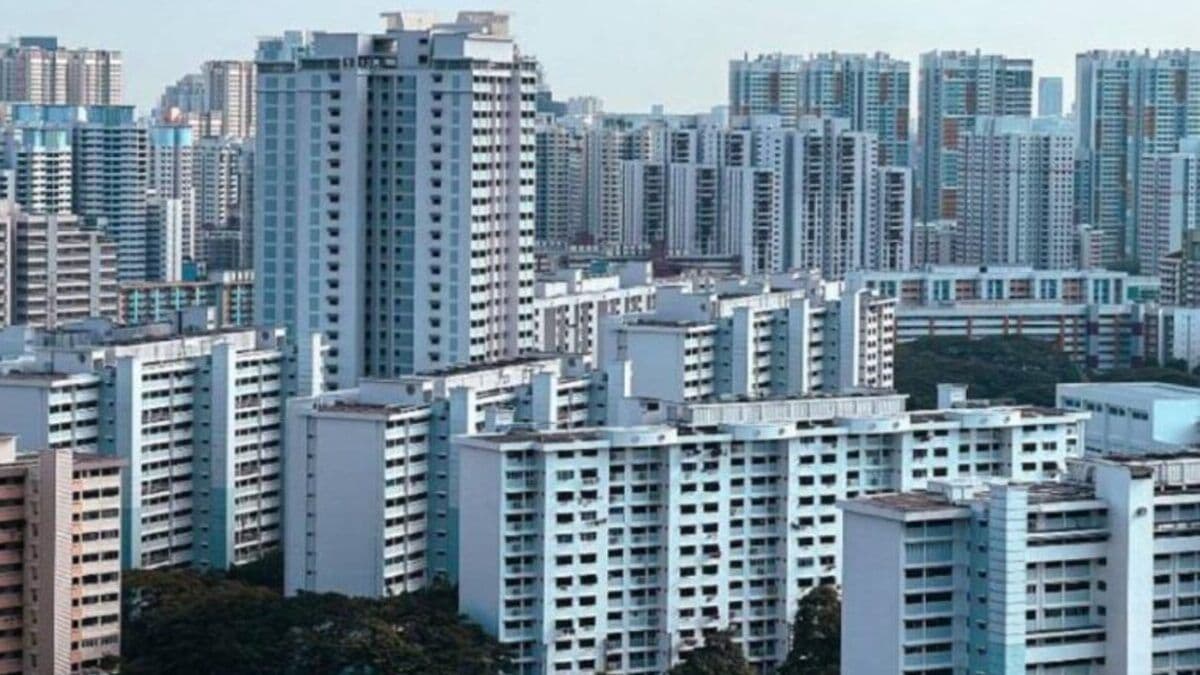Singapore to review income ceiling for public housing; more options for singles, seniors and large families
The Ministry of National Development (MND) will review the income ceiling for public housing and explore new housing options for singles, seniors, and large families, Minister Chee Hong Tat announced on 18 September. The move comes as part of the government’s addenda to the President’s Address, outlining plans for housing affordability, estate rejuvenation, and climate resilience.

- Review of public housing income ceiling and expanded options for diverse households.
- Upgrades to rental housing and initiatives for smoother transition to home ownership.
- Broader national plans include new rail lines, Changi Terminal 5, and stronger climate resilience.
SINGAPORE: The Ministry of National Development on Thursday (18 September 2025) announced that it will review the income ceiling for public housing while exploring additional housing options for singles, seniors, and large families.
Minister for National Development Chee Hong Tat said public housing would remain affordable and accessible through a robust pipeline of Build-To-Order (BTO) flats across different regions, including projects with shorter waiting times and a steady supply of land for private housing development.
Rental housing and ownership support
The government will continue improving public rental housing, with upgrades to older rental blocks and assistance for more rental households to transition into home ownership.
Calls for a revision of income ceilings have grown in recent years. Currently, couples applying for BTO flats face an income ceiling of S$14,000, while singles must be at least 35 years old and earn S$7,000 or less to qualify.
Addenda to President’s Address
The announcement formed part of the addenda to President Tharman Shanmugaratnam’s Address on 5 September 2025, which outlined the government’s priorities for the new term.
Chee said the framework for the Voluntary Early Redevelopment Scheme (VERS) will be finalised to support rejuvenation of older estates, making them more liveable, vibrant, and senior-friendly.
Managing ageing private housing
Legislation is also being reviewed to ensure that management corporations of private housing projects take greater responsibility for maintaining and upgrading ageing developments. The goal is to ensure that such properties remain safe, modern, and suitable for residents’ evolving needs.
Revitalising business nodes and urban centres
Chee outlined plans to revitalise business nodes and workplaces to bring jobs closer to homes.
Economic gateways in the north, east, and west will be expanded, complementing the city centre’s role as a hub for business, tourism, and culture.
The northern gateway will include the Woodlands Regional Centre and Agri-Food Innovation Park, while the eastern gateway will feature Changi Business Park and the planned Changi East Urban District. In the west, the Jurong Lake District will become Singapore’s largest business hub outside the central area.
Catalysing pro-enterprise growth
Chee said promoting a pro-enterprise environment remains central to the Ministry’s approach. Industry partnerships will be strengthened to develop innovative solutions for the built-environment sector.
He highlighted the Business Improvement District initiative, which empowers commercial property owners to undertake place management. Collaboration with local firms will also drive the development of products and technologies that benefit both Singapore and international markets.
Expanding transport connectivity
Alongside housing and urban development, transport remains a major focus.
Acting Minister for Transport Jeffrey Siow https://www.mot.gov.sg/news/details/mot-addendum-to-the-president's-address measures to grow Singapore’s international and domestic connectivity across air, sea, and land.
Siow said Singapore will deepen cooperation with global partners through strategic transport agreements to maintain its position as a trusted global node and create more opportunities for businesses and workers.
Johor Bahru-Singapore RTS and Changi expansion
The Johor Bahru-Singapore Rapid Transit System (RTS) Link remains on track to begin service by December 2026, connecting Woodlands North to Bukit Chagar in Johor Bahru within five minutes.
Capable of carrying up to 10,000 passengers per hour in each direction, the RTS Link will support the Johor-Singapore Special Economic Zone and strengthen bilateral ties.
Changi Airport Terminal 5, due to open in the mid-2030s, will increase Singapore’s annual passenger capacity by over 50 per cent, adding 50 million travellers.
Meanwhile, the Changi East Industrial Zone and upgraded Changi Airfreight Centre will expand cargo handling capacity by 80 per cent to 5.4 million tonnes annually. A 40-hectare Changi East Urban District will also be developed into a lifestyle and business hub.
Rail expansion and domestic mobility
Domestically, investments will continue in rail systems, workforce training, and asset renewal to sustain reliability as the network grows and ages. By the early 2030s, eight in ten households will be within a 10-minute walk of an MRT or LRT station.
Ongoing projects include completion of the Circle Line, extensions of the Downtown and Thomson-East Coast lines, and phased openings of the Jurong Region Line.
Longer-term initiatives extending into the 2040s will add the Seletar and Tengah lines, as well as the Jurong Region Line’s West Coast Extension.
Autonomous vehicles are planned to complement the public transport network, with pilot deployments beginning in Punggol by end-2025.
Climate change and sustainability focus
Minister for Sustainability and the Environment Grace Fu reaffirmed Singapore’s commitment to achieving net-zero emissions by 2050.
Key measures include advancing carbon markets, developing carbon capture technologies, and implementing an economy-wide carbon tax to steer business decisions.
A national adaptation plan is being prepared to address climate risks such as rising sea levels and urban heat. Site-specific coastal protection studies are already underway.
To enhance heat resilience, investments will be channelled into research and technology aimed at managing extreme temperatures.
Food security and nuclear safety
Singapore will continue diversifying food import sources and strengthening local agri-food production to bolster supply resilience. Stockpiles of essential food items will be built up.
The government plans to invest up to S$1 billion over the next two to three decades to upgrade existing hawker centres and build five new ones, ensuring affordable food access.
Fu added that Singapore is also enhancing nuclear safety governance and international cooperation as regional countries explore nuclear energy options. Strengthening incident-response capabilities will be a key priority.







